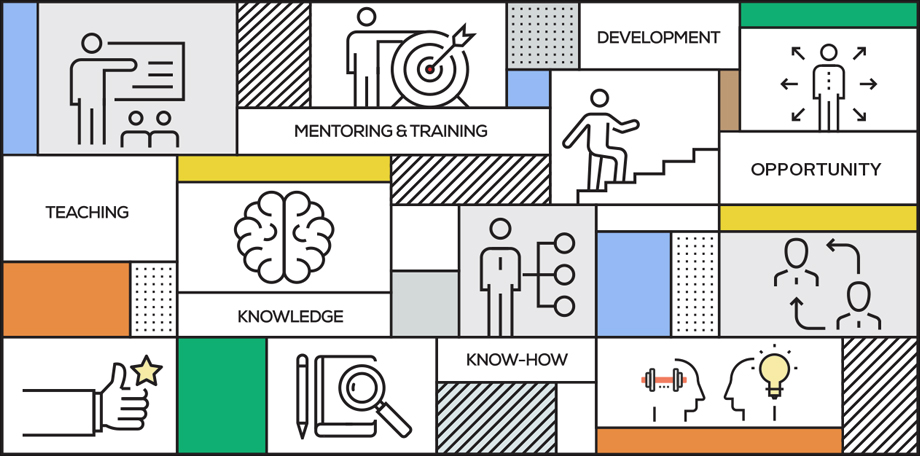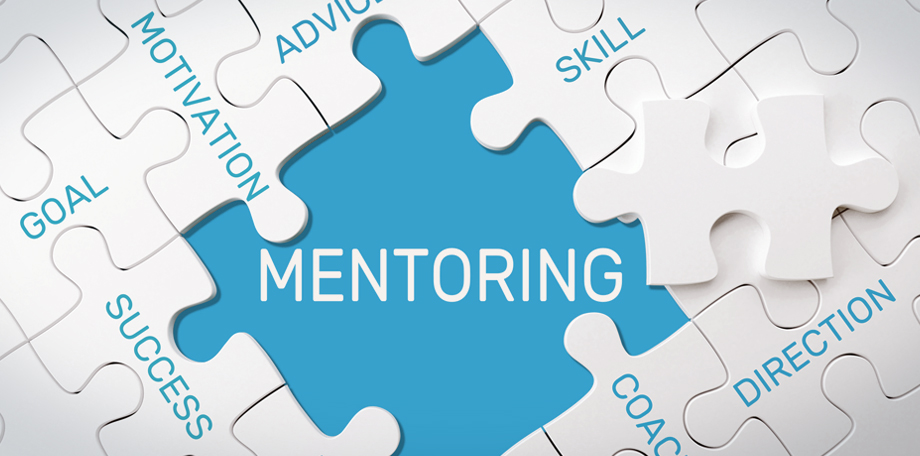We all have people who have made a significant impact in our lives and who have helped shaped us into the person we are today. Those mentors are the game changers in our lives; they give us the courage to do things we think we cannot do. We wouldn’t be where we are today without those people, but do they know how much they really mean to you? When my mentor recently passed away, it gave me reason to reflect back on our relationship.
A TEACHER WHO WAS SO MUCH MORE
Cathy Murphy was my 7th grade teacher, and this was her first job teaching at a Chicago Public School. It didn’t take me long to fall in love with this woman. She was smart, she was young (she was only 10 years older than me), she was hip, she was funny, she made me feel safe and understood. She was a great teacher who constantly challenged me.
Most importantly, she gave me what I was really needed: to be seen, to be heard, to be cared for. I felt loved by her. I felt special. I fantasized repeatedly that one day she would adopt me – so she could be my mom. While she never did adopt me, she became a mother to me. She was my chosen mom.
Somehow, intuitively she knew my home life wasn’t so great. 7th grade was a difficult year for me, and Mrs. Murphy guided me through it. While the dysfunction, the chaos, the trauma of my home life didn’t change, the daily emotions that I experienced – the anxiety, the depression, the isolation, the terror – the emotions that were my everyday experiences – those did change. With Mrs. Murphy’s help, they started to subside. I focused on school. I focused on getting straight A’s. I focused on being teacher’s pet.
That worked for 7th and 8th grade (as Mrs. Murphy was named our class’ teacher the next year), but I had to keep the relationship going through high school. So, every day after school for the next four years, I’d go back to my old elementary school and wait for her. I waited so I could walk and talk with her for a minute as she walked from the school to her car.
When I went to college, we spoke on the phone, sometimes just to chat and other times to get her help editing my term papers. When I graduated from college, she gave me the best graduation present ever – she offered me her friendship. We stayed connected over the years. When I recently lost her, I was devastated. But I take comfort in knowing the influence she had on me and how she shaped me, inspired me, loved me. She lives on in me. I am who I am because of Cathy.
“We don’t accomplish anything in this world alone… and whatever happens is the result of the whole tapestry of one’s life and all the weavings of individual threads from one to another that creates something.” —Justice Sandra Day O’Connor
FINDING A MENTOR
Cathy was a mentor to me for most of my life, and our relationship evolved organically. It’s a good example of how the relationship between a mentor and mentee must be mutual. When seeking out a mentor, consider the person’s time, willingness and interest. You must choose someone who you respect and admire, but there must be a deep connection and thoughtfulness on both sides.
When I waited to walk with Cathy every day after school, I was always very respectful. If she was talking to another teacher when she came out of school, I would simply say “Hi” and go on my way. But most of the time, we would talk for that short walk, and it would make my day. It was how I stayed connected. When I look back, I must have annoyed her. Can you imagine, every day for four years – you walk out of work and there’s this teenager waiting for you? But if I annoyed her, she never let me know. She was always loving and supportive of me.
My next mentor in life was different, brutal even. Dr. Fernando Flores, who is considered the father of coaching, was my professional mentor. I studied coaching under him for three years, but he went above and beyond a typical teacher/student relationship. He challenged me to become cutting edge in leadership development. I despised technology at the time (think Internet in the 80’s), but he forced me to be ahead of the curve with both technology and neuroscience. Fernando now works as a consultant, but his coaching legacy lives on through me and a handful of other prominent coaches.
THE ROLE OF A MENTOR
Though my two mentors were very different, both of the relationships had deep connections and shared similar characteristics. Most people just think of mentorship as a professional relationship, but there are also life mentors and some mentors even cross over between the two realms. Here are some ways mentors can support their mentees:
- They are a support system and depending on the relationship, this could be both emotional and professional.
- They are a sounding board.
- They share stories that provide context and relevance for the mentee whether that’s for business acumen or personal values.
- They help make connections.
- They assist in creating strategy.
- They coach the mentee to overcome any gaps in knowledge or performance, and aid in addressing blind spots.
- They have crucial conversations that serve the mentee.
- They deeply care for the mentee and their well-being, both personally and professionally.
WHY MENTOR?
Mentorship is a relationship of mutual growth, learning and development. Thirty years of research shows it works. When done right, mentoring programs can positively impact the mentees, mentors and even the organization if part of a formal program.
Most successful people attribute their strong leadership skills and professional growth to the mentors who taught them how to lead. In an executive coaching survey, 80% of CEOs give credit to their success to their mentors. In other research, 93% of startups admit that mentorship is instrumental to success. In fact, 70% of business owners that had mentors kept their companies in business for more than five years, the failing point for about half of all businesses.
BENEFITS FOR MENTEES
In an analysis of 43 studies comparing the various career outcomes of mentored and non-mentored employees, researchers found that mentored employees:
- Receive higher compensation
- Receive a greater number of promotions
- Feel more satisfied with their career
- Feel more committed to their career
Mentees may already have potential and talent, but they will receive the gifts of experience and exposure from a mentor. They will be coached from a much wider lens than what they are currently seeing, which can be very powerful.
In this relationship, a mentee receives a strategy partner, a safe sounding board, someone to talk through confidential issues as well as new information that they wouldn’t be privy to otherwise. Mentees also have access to wider networks through their mentors, which could be valuable as job placement opportunities arise.
BENEFITS FOR MENTORS
It can be easy to see how the mentee gains from the relationship, but in an effective partnership, the mentor also benefits. Mentors are typically people who love to give. They love shaping young minds, being influential and teaching others. They often have high emotional intelligence, which is important because they will always receive the information second-hand through the mentee. They must evaluate perceptively and ask the right questions in order to provide effective feedback.
Mentors enjoy putting themselves in someone else’s shoes and help them navigate situations because they have more experience and talent. They are curious and enjoy learning as well, as they get to see things through another generation’s eyes.
A study reported in Harvard Business Review showed that people who served as mentors experienced lower levels of anxiety, and described their job as more meaningful, than those who did not mentor. Mentors often found their interactions with junior colleagues therapeutic. Being a mentor can also help you improve your leadership style. We don’t often consider how we are viewed in regular day-to-day interactions with colleagues. But when you are a mentor, you are forced to think about how your mentee sees you and how your actions and words impact their development. You might come to realize that your management style is talking at people rather than to them. This will become apparent in no better place than your conversations with your mentee.
By asking questions of your mentee, you are empowering them to offer their ideas and contribute. But you are also improving your listening skills and cultivating an environment where a healthy debate can happen. Mentoring is a way to cultivate skills such as empathy and conversation which can positively affect your own managerial style.
BEING AN EFFECTIVE MENTEE
Here are 10 ways to make sure your mentoring relationship works:
- Be respectful. Mentees should always show appreciation and gratitude. Remember that mentors are busy people so only ask for small blocks of time. Do your prep in advance so that you know what you want to discuss to make the most of your time together.
- Make sure it’s a fit. One of the biggest mistakes I see people make with mentoring requests is simply asking someone to be a mentor in their initial inquiry and having the expectation that they will do it. There is no such thing as a “one size fits all” mentoring style. Find people who you are interested in connecting with and ask them to meet for a cup of coffee. If it goes well, ask to meet again. If it doesn’t, don’t judge or blame yourself. Some people simply don’t click.
- Understand that mentors aren’t coaches. Mentors are there to support and advocate for your success, but they aren’t there to coach you on every step of the way in order to get there. Expect to hear things you may not want to hear from your mentor and don’t rely on them for everything.
- Prepare an agenda. Most mentors and mentees start off meeting once a month. Come prepared with questions, concerns and talking points, and don’t rely on your mentor to lead the meeting. Be sure to take notes so you have action items for the next meeting.
- Check in with progress reports. Take the time to share your progress and successes with your mentor. They want to know if their advice is helping!
- Change up your meetings. A coffee meeting is fine every so often but don’t get in a rut. Do lunch, visit each other’s office or go for a stroll for some exercise. Suggest a change of scenery or activity for your meetings that you both will enjoy to help build your connection together.
- Set goals. This should be established at the start of the relationship. Identify the areas you struggle with and professional development needs and where you want to end up. This is a great exercise in self-awareness that can help you and your mentor stay on track.
- Stay in it for the long haul. Mentorship is an investment, and the benefits are not always immediate. Although most mentees start off early in the careers, mentoring is important at every career stage as there will be challenges at all levels. You may not appreciate the impact your mentor has had until you make a decision years later and reflect back to a conversation you had previously.
- Don’t take yourself too seriously. There’s a difference between meaningfulness and seriousness. Lighten the mood with some jokes! By finding a way to bring humor into your relationship, you’ll eventually have a better connection and have more fun.
- Think of your mentor as an extended family member. Mentors will work closely with mentees to ensure that they are exposed to opportunities. Over time, the relationship will likely develop into one that crosses professional and personal lines.
Mentors should ultimately guide you to be a better person. Mentorship can increase self-confidence, improve emotional intelligence and catapult success. I can credit my mentors with all of these attributes, but the most important one was the fact that they became life-long friends.





